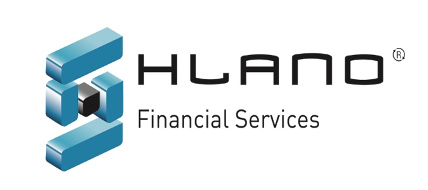Education
What is a Mortgage Bond?
A mortgage bond is a legal document that registers a lender’s financial interest in a property and thereby serves as security for a mortgage loan provided. Once the mortgage loan is paid, the bond is cancelled, and the property is owned outright with no limitations.
Home ownership provides both financial and emotional benefits and can improve quality of life. Hlano aims to help it market segment achieve unencumbered home ownership for building generational wealth and a better future.
Why does a mortgage lender register a bond on your title deed?
When a mortgage lender registers a bond on your title deed, it serves as security for the mortgage loan and gives them the right to take legal action in case of a default. Once the mortgage loan is fully paid off, the mortgage bond is cancelled, and you own the property outright.
What is a Title Deed?
A title deed is a legal document that proves ownership of a property and is used to transfer ownership. It contains information about the property and is recorded at the deeds office. A mortgage lender may register a mortgage bond on the title deed to protect their investment and recover the mortgage loan in case of default. Once the mortgage is fully paid, the bond is cancelled, and the owner has full ownership of the property.
Benefits of Home Ownership
The African Dream
Home ownership is a fundamental part of the African Dream, and it is often associated with stability, security, and dignity. Owning a home provides a sense of pride and accomplishment, and it allows individuals to establish roots in their communities.
Studies have shown that home ownership is linked to better mental and physical health outcomes, as well as higher educational attainment and greater economic stability. When individuals have unencumbered home ownership, they are more likely to invest in their properties, which can lead to increased property values and a more stable housing market. Additionally, unencumbered home ownership provides a sense of control and autonomy over one’s living conditions, which can contribute to a sense of dignity and self-worth.
Home ownership also provides a measure of financial security, as individuals can build equity in their homes over time, which can be used to finance future investments or provide a safety net in times of economic hardship.
In conclusion, home ownership is an essential component of housing security and dignity. It provides individuals with a sense of control and autonomy over their living conditions, as well as a measure of stability and financial security. As such, policies and programs that promote home ownership can have far-reaching benefits for individuals, families, and communities.
Owning a home provides financial and emotional benefits that can improve and greatly enrich your quality of life. Not only is it a significant investment, but it can also provide a sense of security and stability that is invaluable.
Maslow’s hierarchy of needs: shelter
Owning your own home with unencumbered Home ownership can indeed lead to a greater sense of security, as well as meeting one of the most basic needs in Maslow’s hierarchy of needs: shelter. Housing security is important not only on an individual level, but also for families, communities, and overall stability both financially, emotionally, and politically.
When you own your own home, you have control over your living situation and are less vulnerable to factors such as evictions, and the need to move frequently. This stability can lead to a greater sense of security, allowing you to focus on other important areas of your life such as work, family, and personal growth. Additionally, owning a home can provide a sense of pride and accomplishment, as well as an investment in your future.
On a broader level, housing security is important for families and communities. Access to safe and stable housing can lead to better outcomes for children, including improved academic performance and overall health. It can also help to build strong communities, as home owners are often more invested in the well-being of their neighbourhood and are more likely to participate in community activities.
Finally, housing security is important for overall stability both financially and politically. A lack of affordable housing can lead to homelessness, which can have a ripple effect on the economy and the social fabric of a community. Additionally, access to housing is a fundamental human right, and ensuring that everyone has a safe and stable place to call home is essential for a just and equitable society.
Owning a home with unencumbered title meets one of Maslow’s basic needs for shelter and provides a sense of stability and control. It can lead to a greater sense of security, pride, and investment in the future. Housing security is also important for families, communities, and overall stability both financially and politically. Access to safe and stable housing can lead to better outcomes for children, build strong communities, and ensure a just and equitable society.


What is intergenerational wealth and how a home is one’s biggest asset which forms part of creating wealth and stability for a roof over your head?
Home ownership plays a crucial role in housing security and dignity, providing stability, control, and financial security. It also contributes to intergenerational wealth, as a home is often an individual’s largest asset, which can be passed down to future generations. Studies have shown that home ownership is linked to better mental and physical health outcomes, as well as higher educational attainment and economic stability. Policies and programs that promote home ownership can have far-reaching benefits for individuals, families, and communities.
